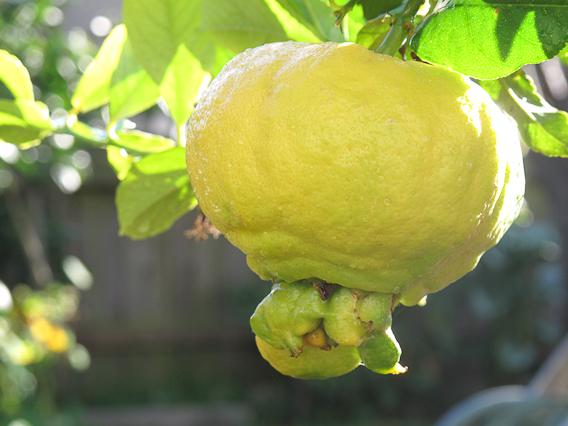As of tomorrow, May 20, LWON will have been alive for five years. LWON is a little surprised at this and entirely pleased with itself. In celebration, two of our brilliant alumni have agreed to write guest posts listing the Top Five Things They Want to List the Top Five Of. We are, and always have been, grateful to them.
 When top LWONian Ann Finkbeiner asked if I would contribute a top-five list of something in honor of LWON’s fifth anniversary, I immediately said yes. Not just because I love and am a little afraid of Ann, but also because of a writerly phenomenon that she may already have coined a clever name for. It’s the mind’s tendency to go blank when deadlines loom and then start generating story ideas once no outlet exists. To wit, the following list of the top five posts I think Ann would have liked, if only they had occurred to me when I was still an active person of LWON:
When top LWONian Ann Finkbeiner asked if I would contribute a top-five list of something in honor of LWON’s fifth anniversary, I immediately said yes. Not just because I love and am a little afraid of Ann, but also because of a writerly phenomenon that she may already have coined a clever name for. It’s the mind’s tendency to go blank when deadlines loom and then start generating story ideas once no outlet exists. To wit, the following list of the top five posts I think Ann would have liked, if only they had occurred to me when I was still an active person of LWON:
1. Abundance without perfection. I have a lemon tree in my backyard. Even in the California drought it produces bushels of fruit, sustained by the pee and spent bathwater of my children. I grew up long ago and far enough north to remember times of the year when fresh lemons couldn’t even be found in the grocery stores, let alone dangling in their abundance just outside my back door. Having a lemon tree is perfect, even though the lemons themselves are decidedly not.
Some are shrunken, as small and hard as golf balls. Some grow with thin skin and are quick to turn brownish and musty: others are bigger than softballs, swollen with inch-thick layers of pith beneath the rind. And some, their developmental pathways hijacked by a citrus mite from the genus Aceria, twist and extend their segments into wild forms. At most, two out of five of our backyard beauties conform to traditional supermarket standards of acceptability. Many of the rest are simply odd, while a few are truly, gorgeously, grotesque.
Developmentally speaking, they are failures. And yet I’ve come to love the lemons all the more for their departures from the expected form. Like the people who populate our lives, they don’t have to be perfect to be full of value. They just have to be.
2. Science Metaphors: Shifting baselines and the upside of media bloat. Once upon a time I worked at Newsweek, back in the 1990s when the magazine was still a bloated purveyor of received wisdom and a narrow, mainstream worldview. God, I loved it. The media world has moved on a dozen times over since then, and I also love the freedom, speed, diversity, and interaction of what it has become. But it’s useful sometimes to be reminded of what has been lost in the process.
Ecologists use the term “shifting baseline” to describe how dangerously easy it is to lose track of what ecosystems were really like before modern human impacts–in the oceans, for example, fish were larger, coral more abundant, and everything just sort of more awesome 50 or even 30 years ago than people seeing them for the first time today can even imagine.
This old training manual from Newsweek (pdf) resurfaced a while back, and reminded me of just how much the media baseline had shifted, too. It’s easy now to forget that the old media establishments, pre-internet disruption, weren’t just places where white men went to shore up the hegemony. They were also ateliers where huge investments of time, intellectual effort, money, and ink were dedicated to refining the craft of journalism and passing it on to new generations. I don’t feel remorse for the old days of media the same way I do for the diminished awesomeness of bluefin tuna or the North American bison. But I do wish that a little more of the seriousness of effort from the old days could have been carried over to the new.
3. On the parallels between standup comedy and science journalism. This was a stupid idea for an essay that never would have been any good at all. I’m glad I didn’t do it.
4. A sermon against sermonizing. Science is supposed to be about uncertainty and intellectual flexibility. But a vocal minority of its defenders and devotees seems to be powered instead by a rigid sense of their own correctness and superiority. From religion-mocking new atheists to greener-than-thou eco-evangelists to homeopath-baiting, well, everybody, it seems to me that science and its fringes attract an unfortunate abundance of preachy inflexibility. And know-it-alls are annoying even when they’re right. But is science really overpopulated with them, and if so how much damage does their proselytizing do? I wish I had the evangelical zeal to find out.
5. The very worst days in science. I have a lot of pet peeves* about ways that journalists sometimes represent science and scientists. One of them is the tendency to skip over the frustration, agony, and horrible luck that are as much a part of science as the epiphanies and triumphs of persistence that get all the press. A litany of research horror stories could make an entertaining corrective. Like the oceanographic research vessel that plowed into a coral reef (pdf) off Mexico’s Yucatan Peninsula in 2005. Or the two different friends I have, on opposite coasts and completely different fields, who had years of Ph.D. work and all their graduate funding summarily wiped out by federal research budget cuts. I would have reminisced, almost certainly, about my personal experience with a large rental truck loaded with gear, data, and thousands of frozen water samples from an Antarctic research expedition that was stolen from a motel parking lot as an amorous scientist (not me) reunited with his significant other after a month at sea. And I would finally have had an excuse to pursue the often-repeated rumors I heard during my graduate training about the marine biologists who affixed bulky radio-tracking packs to sea lions only to have the unfortunate animals annihilated by naval gunners who mistook them for terrorist-trained saboteurs. It would have been epic.
_____
*Look for a list of six of ‘em right here, next year!
Photos by the author
Awesome list. And the photos…the photos! The lemons! I want a poster of all those lemon pics laid out like the Doors of Ireland.
Thanks for posting the Newsweek training manual — super interesting and lots of great reporting tips/reminders.
It’s interesting, isn’t it Robin? I suppose it dates to 1977 and was apparently still in circulation in 1990, but not by 1994.